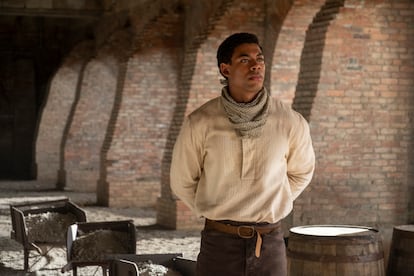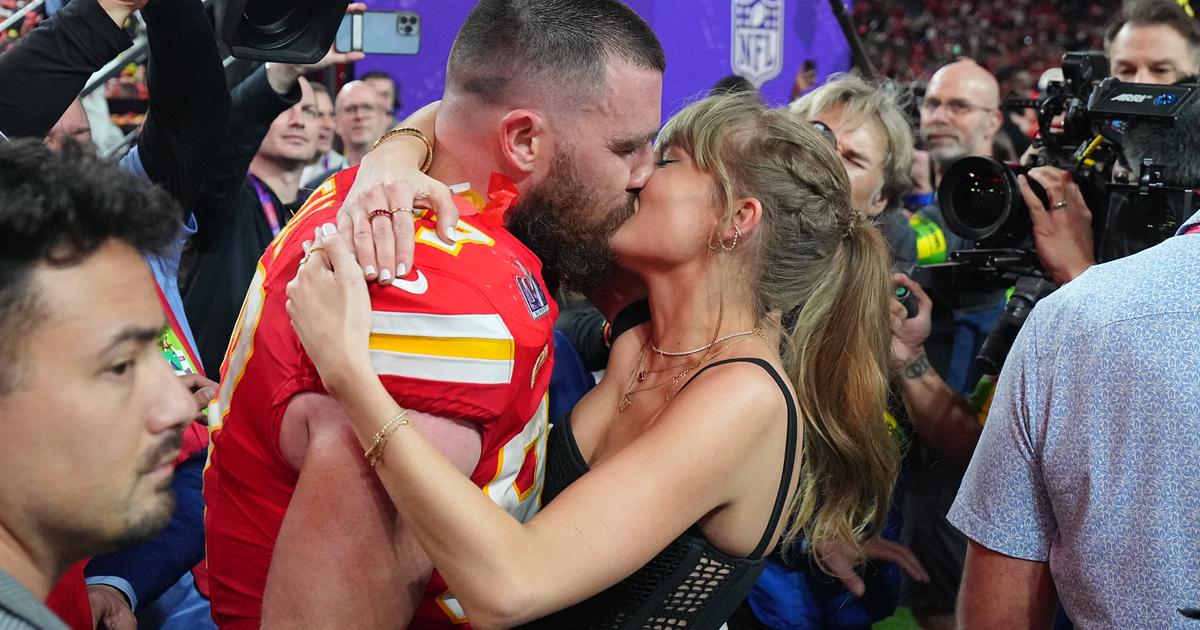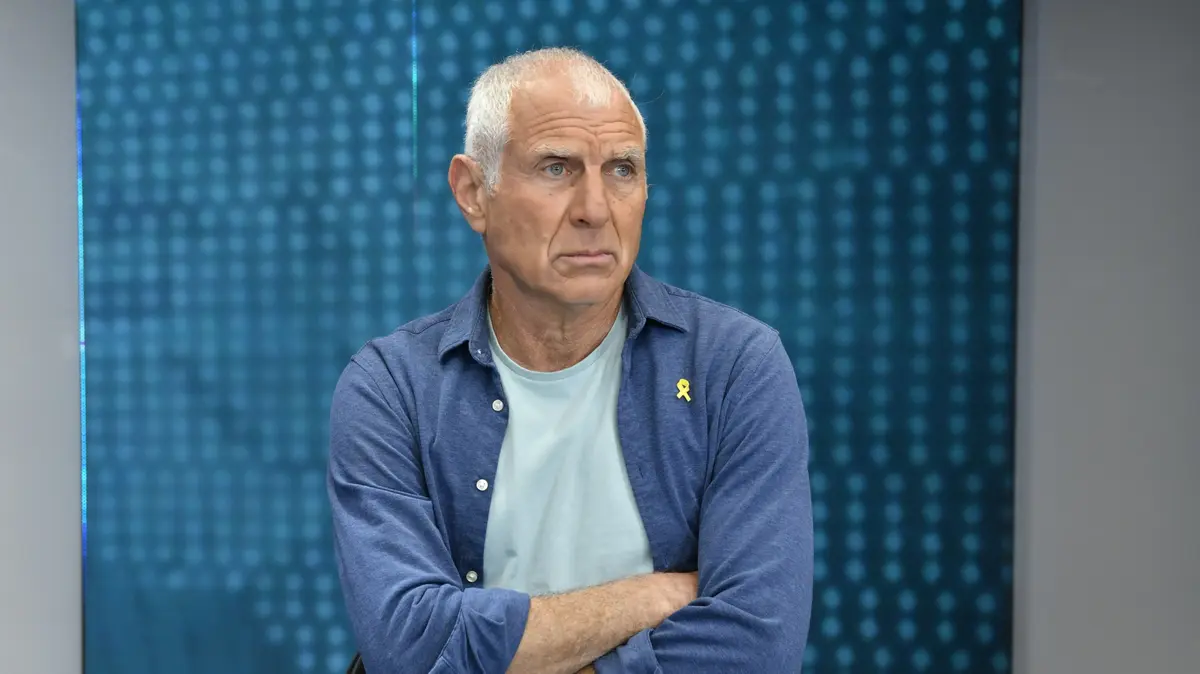In slave-owning America, the Underground Railroad was the network of roads and anonymous neighbors that helped slaves flee from their masters to freedom. In the novel Colson Whitehead published about it in 2017 and with which he won the Pulitzer and National Book Prizes, the railroad is literally a train that runs underground transporting African Americans to abolitionist states; a touch of magic and hope in an otherwise depressingly realistic story. And
The Underground Railroad
(
The Underground Railroad
)
,
the series based on that book that Amazon Prime Video has just released, the railway is the common thread of 10 superlative chapters with which the Oscar-winning filmmaker Barry Jenkins (Miami, USA, 41 years old), director of
Moonlight
and one of the most acclaimed authors of the current audiovisual, debuts on television.
'Them': hit the black, entertain the white
They tell the almost mythical story of Cora, a Georgia slave who flees from state to state to the north in what is the first time that the trauma of slavery has been addressed not from pain but from pride.
To the project, one of the most ambitious series of recent years, Jenkins brings his solemn poetic sensibility, his non-negotiable anger when speaking of the black experience in the United States, in the 19th century or the era of Black Lives Matter, and his fine visual style.
On Tuesday, sitting in what looked like a studio, at home, the acclaimed filmmaker shelled by? Zoom what he considers his most important work.
Question.
This project has taken him four years, almost the entire presidency of Donald Trump.
What attracted you so much to him?
Answer.
I had always wanted to use my voice to create something about my ancestors, the enslaved ones.
And when I was little and they told me about the subway, I admit, I envisioned African-Americans on an underground train: it was magical but it was real.
He hadn't been to New York, he didn't know what the subway was.
When I read the book and saw the same image, a primal feeling awakened in me.
It connected me to an idea of being black in America that I identified as pride.
P.
That pride has become a key part of the identity of the series: the story is not shot from white guilt like almost all slavery movies, but has an African-American look.
It is what is most talked about about her before the premiere.
It bothers?
A.
The history of the United States has been told for a long, too long time from a single and particular point of view.
It is important for a black artist to recover that imaginary and submit it to his vision.
It is a matter that I like, and it does not begin or end with me.
Aaron Pierre, in an instant of the second chapter of 'The Underground Railroad' Kyle Kaplan / AMAZON PRIME VIDEO
P.
In Europe not many people stop to think if something has a black or white look.
Are you afraid that the series will not work here?
R.
I am going to contradict myself: yes it is talking too much about this.
The series is, first of all, a work of art and the point of view never dictates what a work is, it does not make it better or worse.
You can do things with the African-American gaze that don't work, because the work is not good, because it lacks integrity, because it lacks a degree of intention ...
Q.
Many of the forms of racism that the series describes are still in force in the US The filming happened in Georgia, for example, the southern state that about two months ago passed a law limiting voting by mail, which will silence above all the black vote.
What can you, as an African American, do about these abuses?
Would you shoot in Georgia again?
R.
Racism continues more than I live in the United States and in part it is because we do not stand up to it enough.
I have friends who are filming in Georgia right now and they can't leave, it would almost be like letting your job get affected by this horrible thing, like the law is a punishment.
If I was starting from scratch, yes, I would roll elsewhere.
It is a matter of extreme importance: if we had other laws in Georgia we would have another president, no less.
And that forces us to make certain decisions.
Not showing the roots of evil, such as racism but not only, makes us dissociate from it
Q.
The novel is historical, but in the same way that
One Hundred Years of Solitude
is traditional.
It is made up of abstract and dreamlike passages, touches of magical realism, and jumps in time and perspective.
How did you approach the rewrite?
R.
This is already my third adaptation, after
Moonlight
[which made a play by Tarell Alvin McCraney to the cinema] and
The Blues of Beale Street
[about a novel by James Baldwin]. The first time I read a book, I point out what abstract things catch my attention, what has caused me images. That is the first step and it is purely emotional. The second reading is more intellectual: I look for what works in the story and I face the logistical challenge of seeing what I can film. There are sensations that an author can convey and a camera cannot. I see what I can do with them; If I can make them match the ones in the book, fine, if not, I must understand how I am altering the whole. This is the only way I can, I am not saying defend, but rather understand what I am communicating to another person, such as my director of photography or my production designer ... Why everything has to be in a certain way.
Sheila Atim, in an instant from 'The Underground Railroad' Atsushi Nishijima / AMAZON PRIME VIDEO
Q.
What kind of images do you get in this process?
Shapes?
Frames?
A.
Generally movement;
ways to move.
When reading especially a novel that is not in the first person, I usually get that feeling of almost floating through an image or an emotion.
When it happens to me, I make a quick sketch to remember the feeling that movement conveys.
For example, the series opens with the image of Cora [the protagonist, Thuso Mbedu] falling into darkness.
It was an image that I felt with the book and immediately knew that I needed it.
P.
In addition to movement, your cinema highlights the tactile.
Their way of filming according to which everyday objects or textures gives them surreal or even spiritual features.
A.
My grandmother was from the Caribbean, from the Bahamas, and there is a voodoo mystique very involved in the culture.
I remember that he kept a boat under the bed, which had inside a penny and a little water or something similar.
He always told us: "Don't touch the boat, don't touch the boat."
I never knew more.
I didn't expect to see my grandmother levitate or have lightning strike the roof, but I understood that it was a very emotional matter.
He had dumped something on that ritual and that boat.
That stuck with me: you can draw magic from everyday objects, the things you touch, and that magic is that you give them meaning.
A moment from the first chapter of 'The Underground Railroad' Atsushi Nishijima / AMAZON PRIME VIDEO
Q.
The series, despite being optimistic deep down, has several scenes of extreme violence against African Americans.
Was it a rough shoot?
R.
A series is made with many, many people and very little time.
At least the most disgusting scenes were shot in just one day.
The hard part was knowing that these things really happened on this earth, that we were on ground that surely would have seen similar savagery.
That requires constant mental exercise: you remind yourself that this is not real, that he is an actor in a harness, not hanging by his arms over a fire.
Q.
The story is practically based on a binomial: the slave who flees and the slave
hunter
who pursues her (Joel Edgerton).
The latter you develop notably with respect to the novel.
He attributes an idyllic childhood to him.
R.
Not showing the roots of evil, such as racism, but not only, makes us disassociate ourselves from it, that it seems to us that it is not our responsibility, that its creation does not go with us.
It was important to reveal more than an evil baddie: you had to tell how he came to be the person he is.
And this neither redeems him nor forces anyone to empathize with him.
It makes him more egregious, if anything, because he had examples to emulate around him.
Joel Edgerton and Chase W. Dillon, in an instant of the seventh chapter of 'The Underground Railroad.' Kyle Kaplan / AMAZON PRIME VIDEO
P.
Who did not have an idyllic childhood is Cora, the former slave, someone tremendously traumatized by the fact that her mother fled the plantation when she was little.
R.
Cora is a person who begins the series angry, hopeless.
The only person who always, always should have been there taking care of her, proving that she is worth it, dumped her.
I know that feeling.
I grew up with the feeling that my mother [a drug addict in a poor Miami neighborhood] had abandoned me.
I like that Cora is like that because without that trait, this would just be a series about a female slave running from slavery, something we've already seen.
Cora runs away, yes, but she is also built on abandonment, which anyone understands, not just someone who has been abandoned by her mother.
Thuso Mbedu, in an instant of the second chapter of 'The Underground Railroad' Kyle Kaplan / AMAZON PRIME VIDEO
Q.
Did you see
Malcolm and Marie
,
film creator
Euphoria
,
Sam Levinson, where you talk about?
A.
Sam showed it to me, we talked about it, and I didn't find it cruel.
It seemed like a questionable statement to me, but everything must be questioned.
On Twitter it was a big controversy [a very pretentious character claims that it was Jenkins's heterosexuality that made
Moonlight,
a gay story, universal], which left me speechless.
It was on the lips of Malcolm, a very screwed up character.
I don't know what the problem is.
You can follow EL PAÍS TELEVISIÓN on
or sign up here to receive
our weekly newsletter
.









